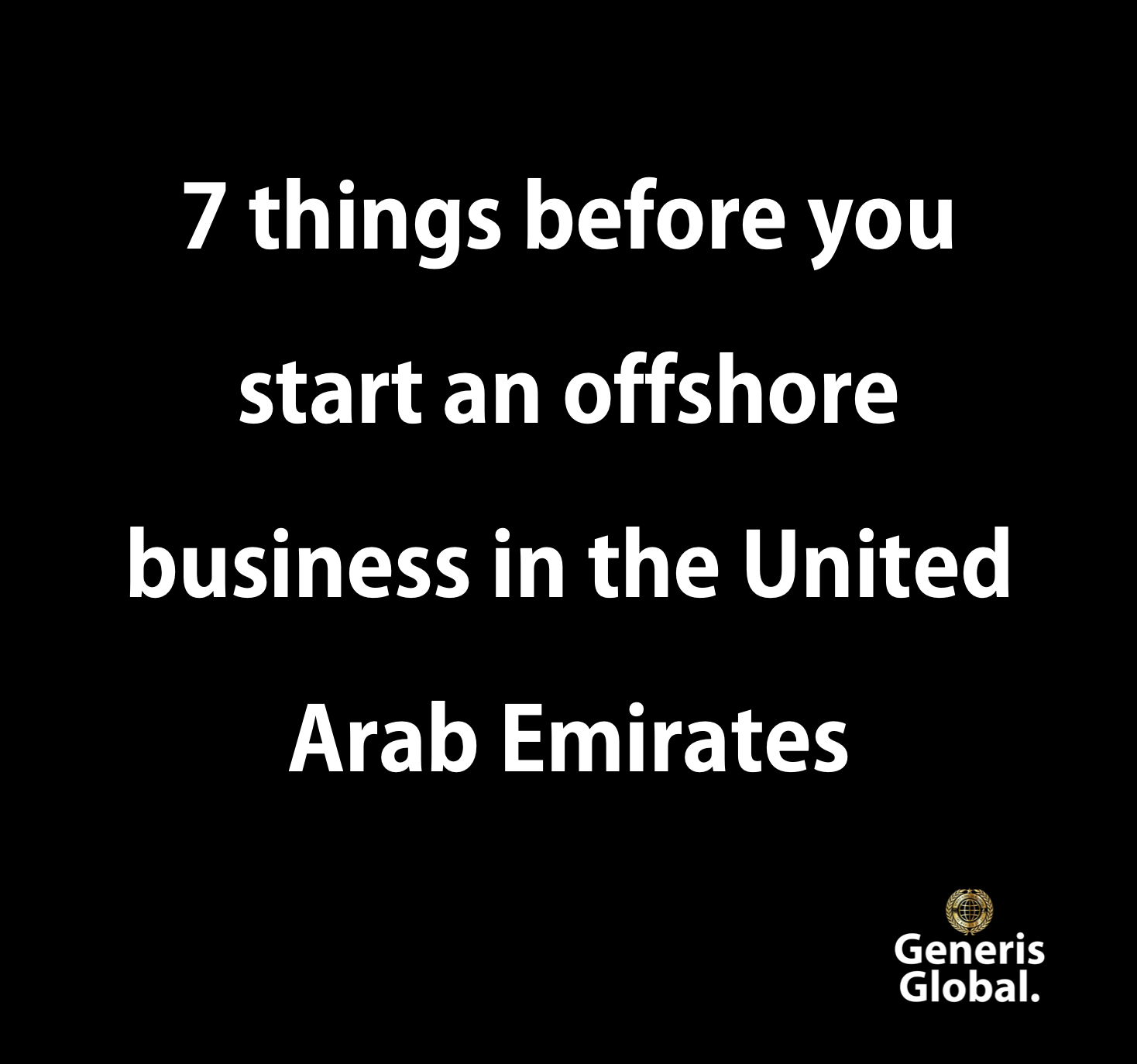The establishment of an offshore business in the United Arab Emirates is one of the greatest possibilities for investors looking to channel their money and profit from worldwide markets. An offshore company registration is advantageous since it allows for significant tax savings while also allowing businesses to operate on a global scale.

Every new businessman or entrepreneur forming an offshore company in the United Arab Emirates, on the other hand, must consider a number of important factors that may be very beneficial before beginning the process of forming an offshore company in the UAE.
Table of Contents
Here are the five most important factors to keep in mind while forming an offshore business in the United Arab Emirates:
Having an offshore business in the United Arab Emirates offers jurisdictional advantages that are distributed throughout the country’s seven emirates. Ras Al Khaimah Free Trade Zone (RAKFTZ), Ras Al Khaimah Investment Authority offshore (RAKIA), Jebel Ali Free Zone Authority (JAFZA), Fujairah Offshore, and others are examples of free trade zones in the United Arab Emirates. Analyze each jurisdiction and make an informed decision on which jurisdiction is the greatest fit for your company.
It is not necessary to obtain a business licence to establish an offshore company in the United Arab Emirates. In contrast to other operating jurisdictions, such as Mainland Companies or Free Zone Companies, which are required to obtain a business licence, an offshore company is only required to obtain a certificate of incorporation. If you want to establish a company in the United Arab Emirates and get a business licence, it is preferable to choose a UAE Mainland Company.
In addition, offshore corporations in the United Arab Emirates are required to have a memorandum and articles of organisation, which serve as their constitutional papers. This implies that the firm is unable to conduct commercial operations in the United Arab Emirates, and its primary purpose is to serve as a holding vehicle for the assets of the parent owners. So, if you are intending to establish a business only for the purpose of conducting monetary transactions, an offshore company would be the best option, but if you want to start a full-fledged firm in the UAE, there are many Mainland Jurisdictions from which you may choose.
For investors from all around the globe, UAE offshore businesses have continued to provide a productive and prosperous environment to do business. Despite this, many people connect offshore businesses with shady practises such as money laundering and asset concealment. However, an investor must be aware that although an offshore authority in the United Arab Emirates guarantees secrecy, it also ensures the legality of companies.
To ensure that offshore businesses in the United Arab Emirates comply with bank laws and to keep track of theft, financial fraud, and money laundering, offshore companies in the United Arab Emirates use the Know Your Customer (KYC) procedure. The KYC procedure requires the submission of papers such as a copy of the investor’s passport, proof of residence, a bank reference letter, and biographical information.
Incorporating in Ras Al Khaimah Free Trade Zone (RAKFTZ) or the Ras Al Khaimah Investment Authority offshore (RAKIA) is less difficult, and businesses may be formed in this jurisdiction in as little as one week if all of the necessary papers are on hand. Some countries, on the other hand, are subject to CID permissions as well.
In order to register an offshore business in the United Arab Emirates, bank accounts must first be established. Those who are new to the area may benefit from the services of a business counselling firm or even an offshore registration agent, which can be obtained for a minimal fee. Also keep in mind that an offshore corporation cannot be formed without the assistance of a company registration agency.
Copy and paste this <iframe> into your site. It renders a lightweight card.
Preview loads from ?cta_embed=1 on this post.